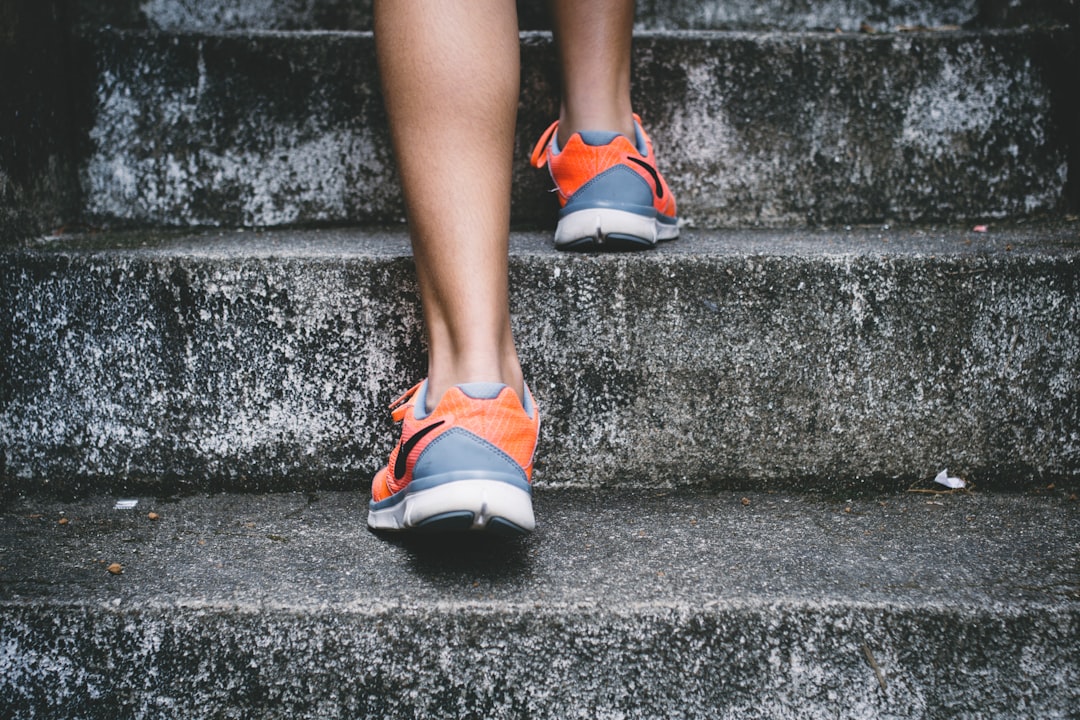Running, We Need to Talk
When Exercise Becomes an Addiction

I admit it. I’m addicted to running.
I’ve said this jokingly for years, but I realized the truth of the matter during a trip to Colorado. Every year, I go to spend a week with family. And every year, I dutifully try to run, only to find myself frustrated and discouraged. Running at altitude is tough. Running at altitude with asthma can be miserable. Combine that with the hills in my sister’s neighborhood, and the whole experience is a colossal beat down.
This year, I decided to do something different. After talking with Alex about the benefits of walking and the recent burnout I had been feeling about running, I decided to leave my running shoes at home and do some vigorous hill walking at altitude to stay in shape. This seemed like an excellent plan until the day of departure which found me compulsively stuffing my running shoes into an already overloaded suitcase. Three days into my trip, I was at the nearest discount store buying the running clothes that I hadn’t packed and four days later, I was out struggling through a three-mile slog at a pace not much faster than walking.
That’s when I realized that while running has for many years been a source of joy, health and happiness in my life, it is also something of an addiction. To understand why, I started taking a critical look at my relationship with running and whether it needed some adjustment.
Building a Health Habit
I started running to quit smoking, and so I’ve always joked that I just replaced one addiction with another. My first running goal was to run 10 minutes without stopping, and man was that hard. However, since running was the only thing that would get me through my cold-turkey mood swings, I had to stick with it, and over time it became easier.
Like many runners, I went on to run a 5K and then a 10K. Soon I was running half marathons. As I gained confidence, I decided I wanted to run a marathon by the time I turned 40. Ten years later, I had run 10 marathons. Training for the last one, I realized I was starting to feel burned out and resolved to try some other forms of fitness after the race. And yet, here I was five months later, still doing the same thing, but at miserable altitude.
From Habit to Addiction
As I slogged up that hill behind my sister’s house, I wondered why I felt so compelled to pack those running shoes and whether running had become an addiction.
While the American Psychiatric Association does not recognize exercise addiction as a mental health disorder, scholars have certainly studied it as a “behavioral addiction.” As this article in the Conversation points out, exercise addiction is often associated with these symptoms (I’ve personally experienced all four – sometimes at once!):
Feeling a compulsion to do more and more exercise, or feeling that you’re not doing enough
Training through injury
Feeling strong withdrawal symptoms if exercise is stopped
Missing important social events because you “have to” exercise.
Anecdotal evidence abounds as well. In an article for Women’s Health, Fiona Thomas shares her own story of exercise addiction:
Fitness became something I could align myself with; something I could use to prove that I was worth something, and something I could control. But in an effort to help myself, I’d created another issue entirely.
Like Thomas, I have often felt that exercise, and particularly running, has offered a way for me to feel in control. But it has also sometimes led me to miss out on time with family and friends and burden myself with unnecessary guilt and shame.
Finding Balance
So, I’m addicted to running. But is it an unhealthy addiction? In general, I would say no. Running is a form of meditation, helping me to manage my moods, connect with nature and feel good mentally and physically.
However, I do feel like I could benefit from more balance in my approach to fitness that includes more fun and less compulsion. I was inspired by Thomas’ resolve to “train simply because I know it’s good for my physical and mental health.”
This commonsense approach to fitness is core to the philosophy behind Practically Fit and why I’m so excited to be working with Alex on our podcast, which will launch soon. We’ll share our own stories and practical tips for staying fit over 40 (or, er, 50). I hope you’ll subscribe and join us on the journey.

